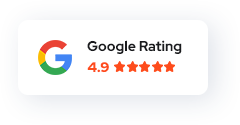Our experience and innovation allows our partners to grow in safety.
In choosing an Internet service for your business, you may be faced with a choice between broadband Internet and a leased line. As a consumer shopper for home use, likely the only option would be for regular cable Internet, i.e., broadband. You might make the same choice for your business, not knowing of any other options and not being aware of potential limitations when simply choosing cable broadband. However, this choice may prove important or even critical in the business setting, and you should be aware of the distinctions between the two.
For the most part, a leased line will cost more than regular cable Internet. This is mostly because of differences in speed and capacity. The cost of a leased line may prove prohibitive in a small business setting. However, the difference in performance may justify or even necessitate the choice.
A regular cable Internet connection provides different speeds for downloading and uploading of data. By data is meant files, and uploading of files consumes far more bandwidth than does downloading of files. Uploads are slow by comparison with downloads. Even though cable Internet may be termed high speed, in fact the cable Internet connection is asymmetric, meaning processed at different speeds depending on direction of data transmission. The average cable Internet download speed over the past few years has been 64.17 mega bits per second (MBPS), whereas the average upload speed has been 22.79 MBPS. That is a significant difference. At the same time, leased solutions are symmetric, meaning downloads and uploads are performed at the same speed. This alone explains part of the difference in cost.
Leased solutions normally provide an unmetered connection. They can be used as much as needed without any additional fee and without the risk of having the connection violate any fair use agreement calling for a capping of use. The connection speed for a leased user will be fixed, as opposed to best efforts-only normally offered with cable Internet. For the home user of cable Internet, there is almost always a limit to use, beyond which the connection will be capped.
Whereas home cable Internet service generally travels over copper wires from the provider, a leased alternative will more likely come over a full fibre or fibre optic connection. The leased user can obtain a hard wired Internet source.
The home user shares the cable Internet service with other users connected to the same cable cabinet. During hours of heavy usage, capacity and performance drop for any one user. The user of a leased solution will have a dedicated connection from site to ISP network, available exclusively 24 hours per day and seven days per week.
The provider of a leased solution will maintain reliability of service. The provider will likely offer a Service Level Agreement guaranteeing that service will be performed at a certain level.
Does your business need broadband?
Providing creative technical support for better business performance since 1999.

| Cookie | Duration | Description |
|---|---|---|
| cookielawinfo-checkbox-analytics | 11 months | This cookie is set by GDPR Cookie Consent plugin. The cookie is used to store the user consent for the cookies in the category "Analytics". |
| cookielawinfo-checkbox-functional | 11 months | The cookie is set by GDPR cookie consent to record the user consent for the cookies in the category "Functional". |
| cookielawinfo-checkbox-necessary | 11 months | This cookie is set by GDPR Cookie Consent plugin. The cookies is used to store the user consent for the cookies in the category "Necessary". |
| cookielawinfo-checkbox-others | 11 months | This cookie is set by GDPR Cookie Consent plugin. The cookie is used to store the user consent for the cookies in the category "Other. |
| cookielawinfo-checkbox-performance | 11 months | This cookie is set by GDPR Cookie Consent plugin. The cookie is used to store the user consent for the cookies in the category "Performance". |
| viewed_cookie_policy | 11 months | The cookie is set by the GDPR Cookie Consent plugin and is used to store whether or not user has consented to the use of cookies. It does not store any personal data. |